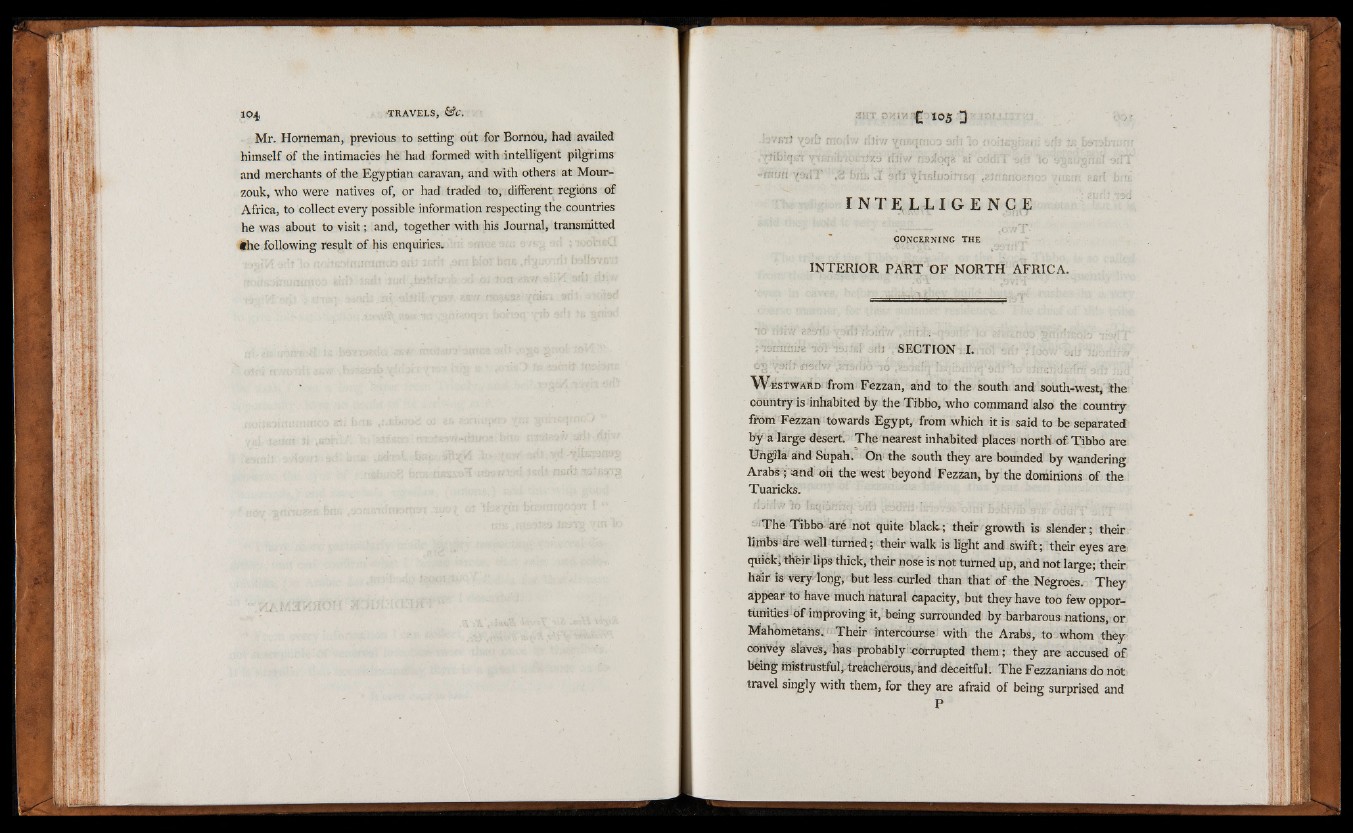
Mr. Horneman, previous to setting out for Bornou, had availed
himself of the intimacies he had formed with intelligent pilgrims
and merchants of the Egyptian caravan, and with others at Mourzouk,
who were natives of, or had traded to, different regions of
Africa, to collect every possible information respecting the countries
he was about to visit ; and, together with his Journal, transmitted
the following result of his enquiries.
f lT ','3 .'biiis J orii yhrJuoimq .slriBnoanoo Vfifi
I N T E, L L I G E N CE
CO N C E R N IN G THE
INTERIOR PART OF NORTH AFRICA.
i SECTION I.
W estward from Fezzan, and to the south and south-west, the
country is inhabited by the Tibbo, who command also the country
ffom Fezzan towards Egypt, from which it is said to be separated
by a large desert. The nearest inhabited places north of Tibbo are
Ungila ahd Supah. On1 the south they are bounded by wandering
Arabs f&nd oh the west beyond Fezzan, by the dominions of the
Tuaricks.
The Tibbo aré not quite black-; their growth is slender; their
littibskre well turned; their Walk is light and swift; their eyes are
quick, tfeir lips thick, their nose is not turned up, and not large; their,
hair is very long, but less curled than that of the Negroes. They
appear to have much natural capacity, but they have too few opportunities
of improving it, being surrounded by barbarous nations, or
Mahometans. Their intercourse with the Arabs, to whom they
convey SlkveS, has probably corrupted them; they are accused o f
being mistrustful, treácheroüs, knd deceitful. The Fezzanians do not
travel singly with them, for they are afraid of being surprised and
P